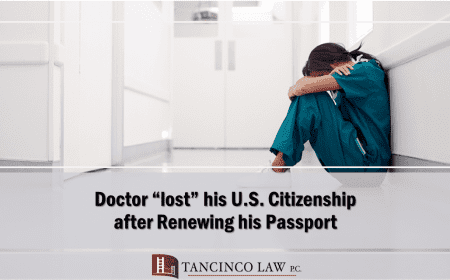With the current recession our economy is suffering, with plummeting home values, with savings and retirement accounts losing billions in value, with very high unemployment rates and millions suffering financially, many are left with no other option but to file for bankruptcy. However, before making the decision to file bankruptcy it would help to know how the process works.
Bankruptcy is a remedy given to debtors who can no longer pay their debt. It “protects” debtors from being forced to pay for debts they can no longer afford. There may be hundreds of reasons on why an individual is in financial trouble: job loss, medical condition, unprofitable businesses, or maybe even just poor financial management by an individual who accumulated debts he/she can now no longer afford to pay. In the US, no one goes to jail for failing to pay a civil obligation. Hence, whatever the reason that brought an individual to financial ruin, bankruptcy laws do not distinguish between these reasons. Bankruptcy laws are there to “protect” individuals who need protection from debts they can no longer afford to pay. It gives debtors a chance to have a fresh start in life. After bankruptcy, debtors start with a practically zero balance sheet instead of starting with a negative one. It gives creditors a chance to move forward without being burdened by existing debts.
A bankruptcy case is filed in a US bankruptcy court and handled by a federal judge who decides issues coming out of the case. Debtors and creditors normally do not appear before the judge. Debtors normally appear only before a “trustee” who is appointed by the judge. The “trustee’s” job is to serve as a “watchdog over the bankruptcy process”.
In a Chapter 7 filing, also called a “liquidation” proceeding, it is the trustee’s job to collect assets of the debtor that are not exempt, and, liquidate (reduce to money) these assets. The liquidated assets, if any, are then distributed to the creditors by the trustee. The debtor will then get a discharge from all his obligations.
In a Chapter 13 filing, often called the “wage-earner” bankruptcy, the debtor uses this proceeding to reorganize their financial affairs and pay off part of their debts over a 3 to 5 year period. The US “trustee” serves as a trustee for the debtor’s estate pending fulfillment of the debtor’s repayment obligations under the 3 to 5-year plan.
In case you are still asking whether a bankruptcy filing would save your home from foreclosure, the answer is “it depends”. In a chapter 7 filing, it would save you from foreclosure for a certain time period only. This gives you some time to bargain with the creditor where all collection actions are stopped temporarily. A Chapter 13 filing, on the other hand, may possibly save your home from foreclosure, but there are certain income requirements you have to qualify for and certain debts that you will be required to pay during a 3 or 5 year period. Chapter 13 filing allows you to discard some unsecured loans that save you some money to pay off your mortgage obligations.
Both bankruptcy and foreclosure of your home affects your credit score. A foreclosure could stay in your credit report for 7 years while a bankruptcy filing could affect your credit for 10 years. However, lenders may possibly consider borrowers with a foreclosure history as a worse credit risk than someone with a bankruptcy filing.
Most individuals go through the bankruptcy process never seeing the judge or a courtroom. It is mostly a process involving paper disclosures and filings. It usually involves only 1 hearing before a “trustee”. Once an individual has decided to file for bankruptcy, the process itself is quick and simple. The decision to file it, however, is the harder part.
(DISCLAIMER: material presented above is intended for informational purposes only. It is not intended as professional advice and should not be construed as such. Rey Tancinco is a partner at Tancinco Law Offices, a professional corporation with offices in San Francisco, Vallejo, and Manila. The law office website is at: tancinco.weareph.com/old. Rey Tancinco can be contacted at (800) 999-9096 or (415) 397-0808 or via email at: attyrey@tancinco.com.)




